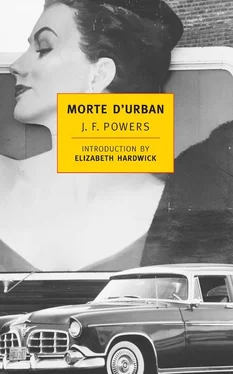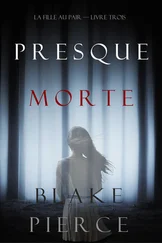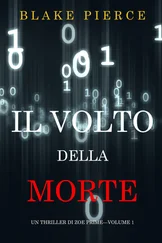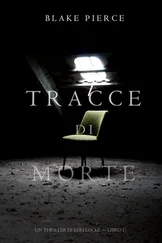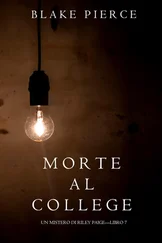Father Urban had overlooked the collar in his hand. He deposited it on the seat of the car, and then he followed Sally down to the water. He was still trying to see Norris. They boarded the launch, Sally going to the helm, starting the motor, and Father Urban casting off. They headed straight out into the lake. Soon they were among islands that Father Urban had seen only in the distance, since always before, when he’d sailed under Mrs Thwaites’s command, the launch had pursued a coastal course.
“You really think it’s safe in here?” he asked. There were rocks all around them.
“No,” she said. “Not really. These are the Spice Islands. That’s what they were on Dickie’s map, when we were kids. This lake was the whole world then.”
“What was that big island ahead?”
“Australia. No, he’s moved, I guess,” Sally said. “If we go around Australia, we may not catch him. No, we’ll go back the way we came, and maybe we’ll see him when we reach the castle.”
Sally worked back through the Spice Islands, and Father Urban was glad when they were gone. When they reached the castle, however, there was no sign of Norris. “He’s stopped in some inlet,” Sally said. “But he’ll see the smoke and come.”
“Smoke?”
“You need a fire in the castle these days.”
“Don’t overdo it,” Sally said, coming back from the decanter with their glasses.
“Too much, you think?” said Father Urban, and, with the poker, pushed aside some of the green rushes they’d gathered before entering the castle. The rushes made the fire smoke, and Father Urban felt a certain obligation to keep applying them to the burning logs.
“He won’t see the smoke anyway, if he’s still out there,” Sally said.
Father Urban glanced at the sky darkening in one of the slit windows. “He may not be out there then?”
“No.”
“But if he went in, wouldn’t he see the launch was gone, and come here?”
“He might not.”
“He wouldn’t worry?”
“No. I often come here. Sometimes I sleep here.”
“You do ?”
“Is that so odd?”
“No, I guess not,” said Father Urban, smiling. Really, it was quite comfortable in the castle, with a fire. It was just a one-room castle with an open iron stairway winding up to a trapdoor. There was a bed, or couch, woven of willow and shaped like a swan, tinted powder blue. In two of the slit windows there were screens to let in air and keep out insects. No electricity or water (except for the lake, which lapped against one wall of the castle), but there was firelight, and, on the chimney piece, if more light were required, there was a lamp. The ashes and stones of the fireplace had been warm when they arrived. There was a wind-up phonograph in one corner, and, on the floor, in front of the fireplace, a polar-bear rug with a number of burned spots in it. There were tinned snacks — smoked turkey such as they were having — and there was scotch. “Say, this is good stuff,” Father Urban had said when he tasted it — how good he hadn’t realized until Sally told him it was thirty years old and a hundred and fourteen proof, which made Father Urban feel a lot better about mixing it with lake water. He’d hesitated at that, as he had about eating one of the tiny red berries from a bush by the castle door. The berry had tasted sweet and then bitter.
“What’d you say this is?” he asked, raising his glass.
“Old Excellency.”
“I’ll have to remember that.”
“What was your impression of Mrs Leeson?”
“Well, she’s nothing like Katie.”
“No, I’m afraid not. She’s a beautician by trade — a trained operator.”
“That I can believe.”
“So Mother’s had her hair dyed.”
“ What? I mean — what color?”
“Same as mine.”
Sally’s hair was mahogany. Father Urban shook his head in sorrow. Mrs Thwaites must look like hell.
“Father Udovic says it looks just fine.”
“Is that what it used to be — the color of yours?”
“No, it was black.”
“I don’t get it.”
“Mrs Leeson and Mother watch for a certain commercial on television — one of those mother-and-daughter soap commercials. When it comes on, Mrs Leeson says, ‘My, you two look just like those two.’”
Again Father Urban shook his head in sorrow.
“Young Mrs Oscar Holmgreen and her daughter Debbie, of Fargo, North Dakota.”
“What?”
“They’re the ones we look like.”
Sally seemed to find this amusing, but Father Urban did not find it so. “How is your mother, Sally?” He hadn’t called her Sally before.
“Happy as a clam.”
“Is Dickie still away?”
“Yes.”
Father Urban waited for more.
“Dickie and two friends have opened a bookshop in Des Moines.”
“ What? You mean he’s gone back to that?”
“I gather it’s not like the last one — not Catholic.”
“And Dickie’s backing it?”
“Oh no. No more than the others. Dickie isn’t very well off, you know.”
“Is that so?” Is that so?
Sally said that Dickie had to get along on the interest from his inheritance, that he’d made over the principal to his mother when he first entered religion. “As he calls it. It was either that or give what he had to them — first it was the Dolomites — or otherwise dispose of it. Naturally, Mother was opposed to that. She was right, of course, as she has been since — a number of times.”
“So Dickie’s in Des Moines.”
“‘A Winter’s Tale.’”
“What?”
“That’s what they call the place.”
“Doesn’t sound very good, does it? No wonder his mother’s worried.” With Dickie not very well off, and with Mrs Thwaites sore at Father Urban, was there any hope for Eight Seasons Editions? “Your mother’s happy then? No regrets?”
“About Katie?”
“Well, yes,” said Father Urban, though he meant more than that.
“None.”
Father Urban looked at Sally — her eyes were actually dark brown but appeared black.
“And none where you’re concerned. Mother’s a hard, hard old woman. You don’t want to believe that, do you?”
“Let’s just say she’s an old woman.”
“A hard, hard old woman.”
“I wouldn’t say she’s so hard where you’re concerned. You know she worries a lot about you.”
Sally picked up their glasses. “I wouldn’t count on that, if I were you,” she said, and went over to the decanter.
“And what was your impression of Norris?” she asked later on. She had just lit the lamp and placed it on the bookcase, by the phonograph, so the light wouldn’t shine in their eyes. They were sitting before the fire in comfortable chairs made of woven willow like the swan but painted a glossy orange that picked up the firelight.
“He seems a very pleasant man,” Father Urban said. “The question is what did he think of me?”
“He didn’t say. He only said you were someone who’d had an accident. You’re all right now, aren’t you?”
“Except for occasional headaches.”
Father Urban felt that it was time for him to define their relationship. Was it too much to hope that more would come of their meeting than idle conversation and a hangover? “By the way,” he said, “would you care to tell me why you’re out of the Church?”
“I’m not a religious person.”
“You say that as though it were a question of being right- or left-handed.”
“Well, isn’t it?”
“You could be starving, spiritually, and never know it.”
“I know I’m happier out,” she said, and offered him another cigarette. His cigars were in his bag.
“Thanks. I’m always curious,” he said, lighting her cigarette, and then his, “when I meet somebody who’s trying to go it alone. But I’m always disappointed. There’s always a skeleton in the closet somewhere — a loved one or a relative back on the shelf. Sometimes people will admit it, but usually they won’t. It’s hardly ever a matter of faith. There’s always more meat for the psychiatrist than the theologian, and it’s getting worse, I’d say. In any case, I certainly don’t think you’re one of those people who lack, or seem to lack, all capacity for God — pillars of the Church, some of ’em. That may cover your mother — and brother, for all I know — though, of course, it’s not for me to say. But I do say this: if we’re going to talk about you and the Church, then we should leave other people out of it.”
Читать дальше
